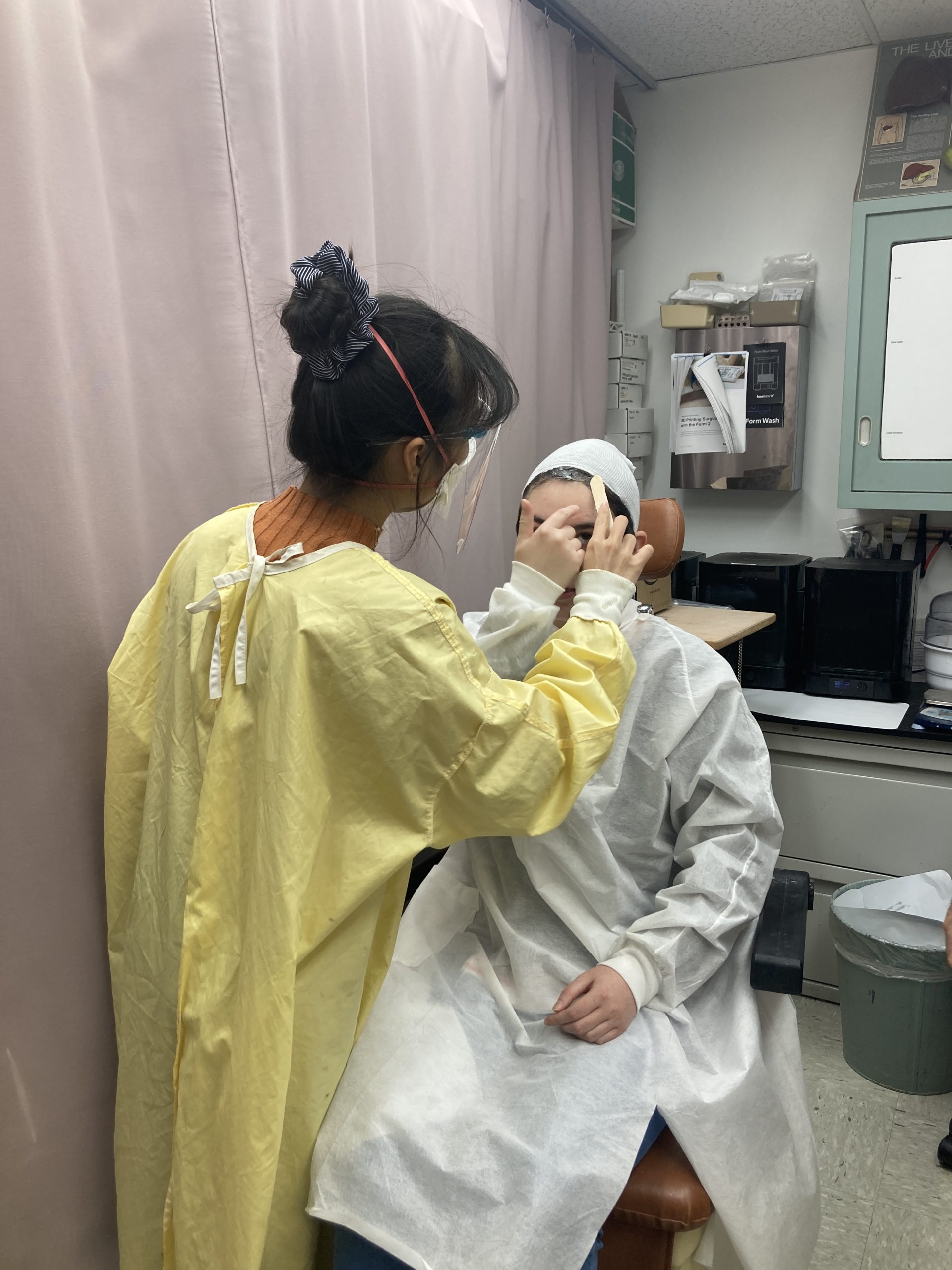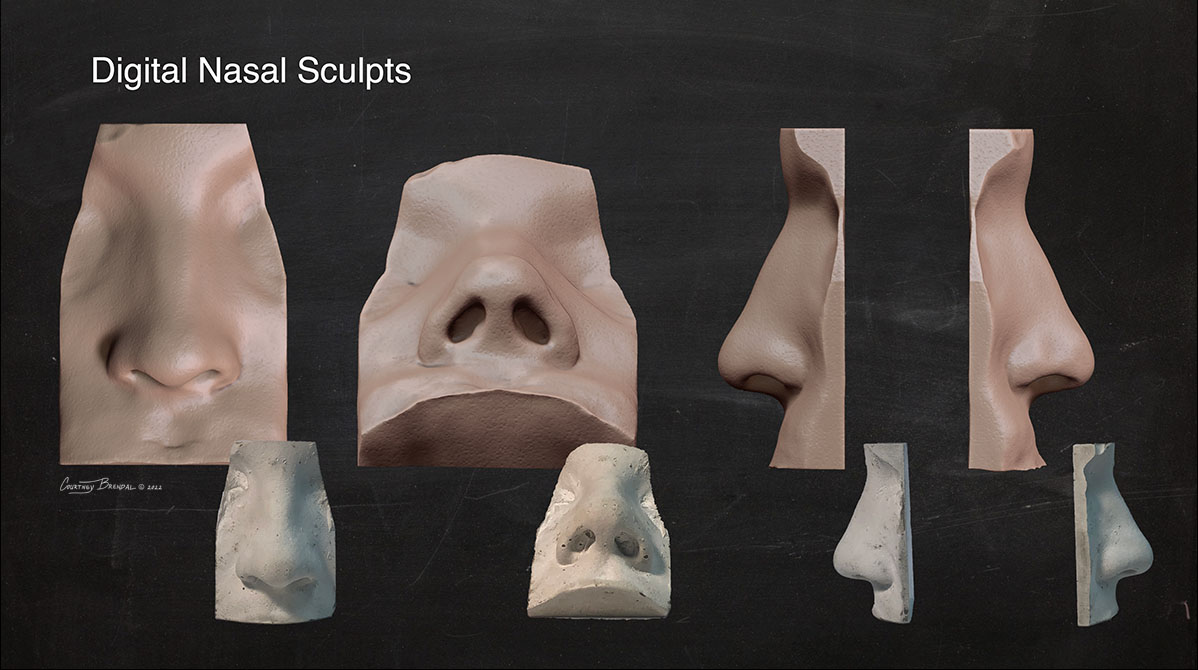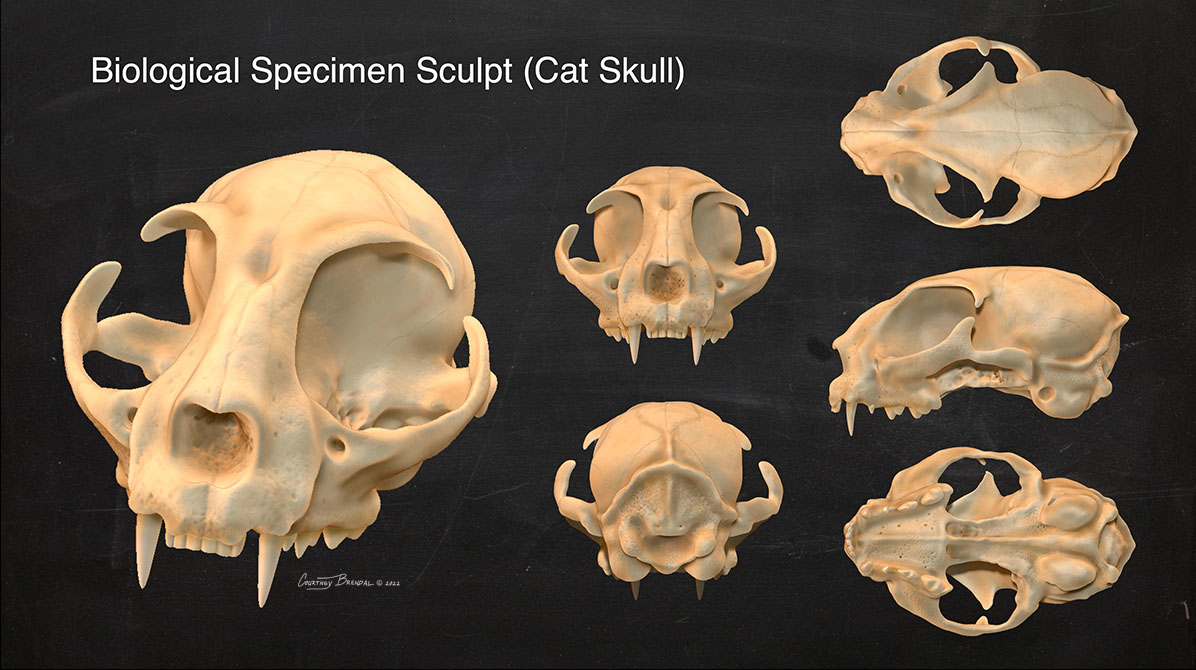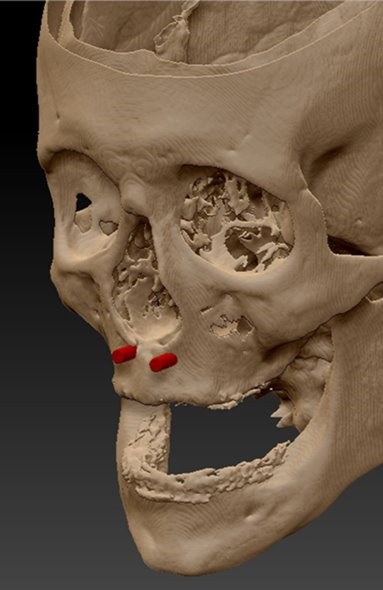MBI Graduate program: ME:120.716
Medical Sculpture
Offered: 3rd Quarter, 1st Year
Instructors: Juan Garcia, Associate Professor
Credits: 3 Credits
summary
Survey of materials and techniques for creating custom medical sculptures
Course Description
Objectives
- Demonstrate the ability to safely and accurately work with a patient taking full and partial face impressions using alginate and polyvinylsiloxane (PVS)-based impression materials
- Recognize factors and applications for different mold-making designs, including flexible and rigid molds
- Demonstrate knowledge of handling skills, physical properties and applications of materials used in mold making and casting of medical sculptures (i.e. including alginate, wax, silicone, clear resin, polyurethane resin, acrylic, and gypsum)
- Describe the scope of practice of the anaplastologist, understand the various types of prosthetic devices made, retention options, treatment planning considerations, and patient groups treated
- Demonstrate the ability to use proper medical terminology for auricular and nasal surface anatomy. Understand terminology of surgical procedures associated with craniofacial prosthetics
- Describe the various steps involved in creating a custom facial prosthesis: including treatment planning, impression, patient gypsum model, wax prototype, mold-making, intrinsic color mixing and packing, casting, finishing and extrinsic coloration.
- Demonstrate the ability to observe 3D forms and accurately reproduce these both traditionally and digitally
- Describe process for using advanced 3D technologies such as reconstruction of DICOM datasets, photogrammetry capture, surface laser scanning, digital sculpting, and 3D printing
- Demonstrate ability to use 3D digital sculpting (Pixologic ZBrush) software for modeling medical subject matter and create a turntable movie
- Recognize factors necessary to prepare 3D files for animation (such as topology) or 3D printing (such as watertight geometry)
Assignments
Students will further develop their skills through class lectures/demonstrations, and class exercises, including:
- Nasal and auricular traditional clay and digital sculpting exercises
- Self selected topic and Cranium digital sculpting exercises
- Digital or traditional custom medical sculpture (anatomical, pathological or facial prosthetic)
- Critique topic presentations
Student Evaluations
- Instructor rating
- Class discussion and participation
- Successful completion of above-mentioned assignments
- Critique of project along with PowerPoint presentation of topic of choice
Resources
Class lectures, handouts, reference books, journal articles, product literature, instructional videos, instructor led supervised coaching, demonstrations, and hands-on-practice.
Schedule
Refer to 1st year calendars and syllabi.
Student Artwork
Gallery of 3D Sculpture, Interactives and Prints
The health and wellness of students are of utmost importance to us here at Johns Hopkins. If you are struggling with anxiety, stress, depression, or other wellbeing-related concerns, please consider contacting Mental Health Services at 410-955-1892 or one of the other wellness resources within Student Health and Well-Being. If you are concerned about a friend, please encourage that person to seek out support. If you or someone you know needs immediate assistance for a mental health concern, please call the Behavioral Health Crisis Support Team at 410-516-9355.
Students who would like to request disability-based accommodations should contact the Disabilities Service Coordinator, Ellen Kaplan, at [email protected] or complete the online accommodations application. Documentation guidelines are provided on the application.





